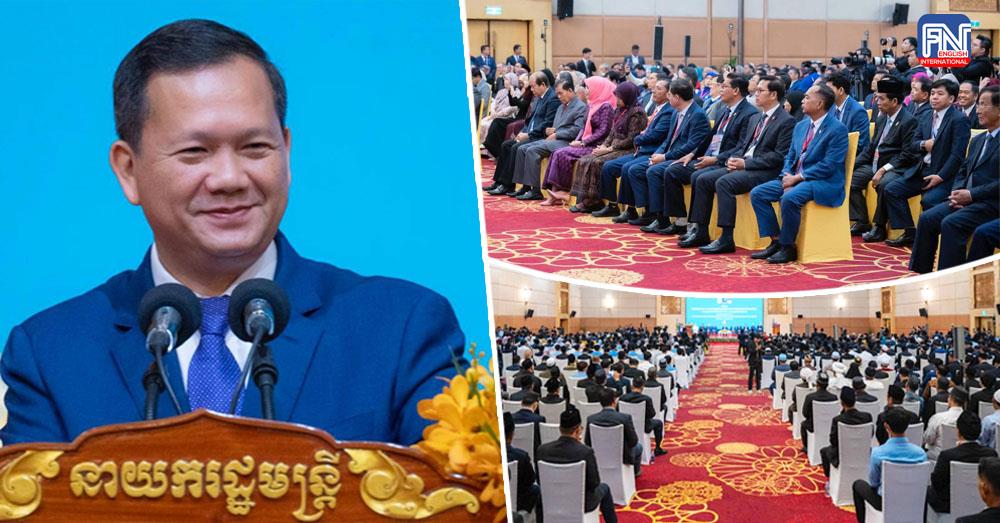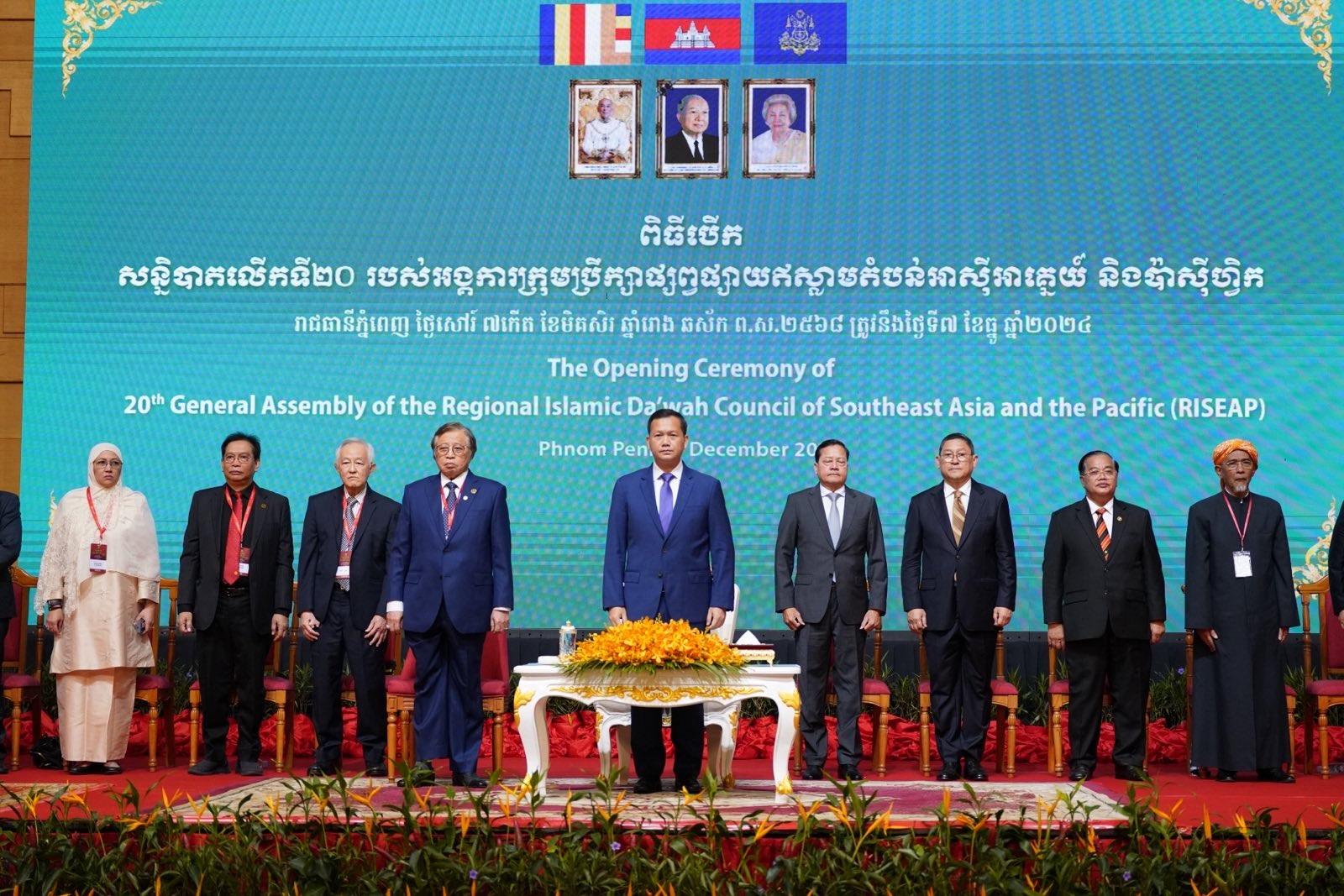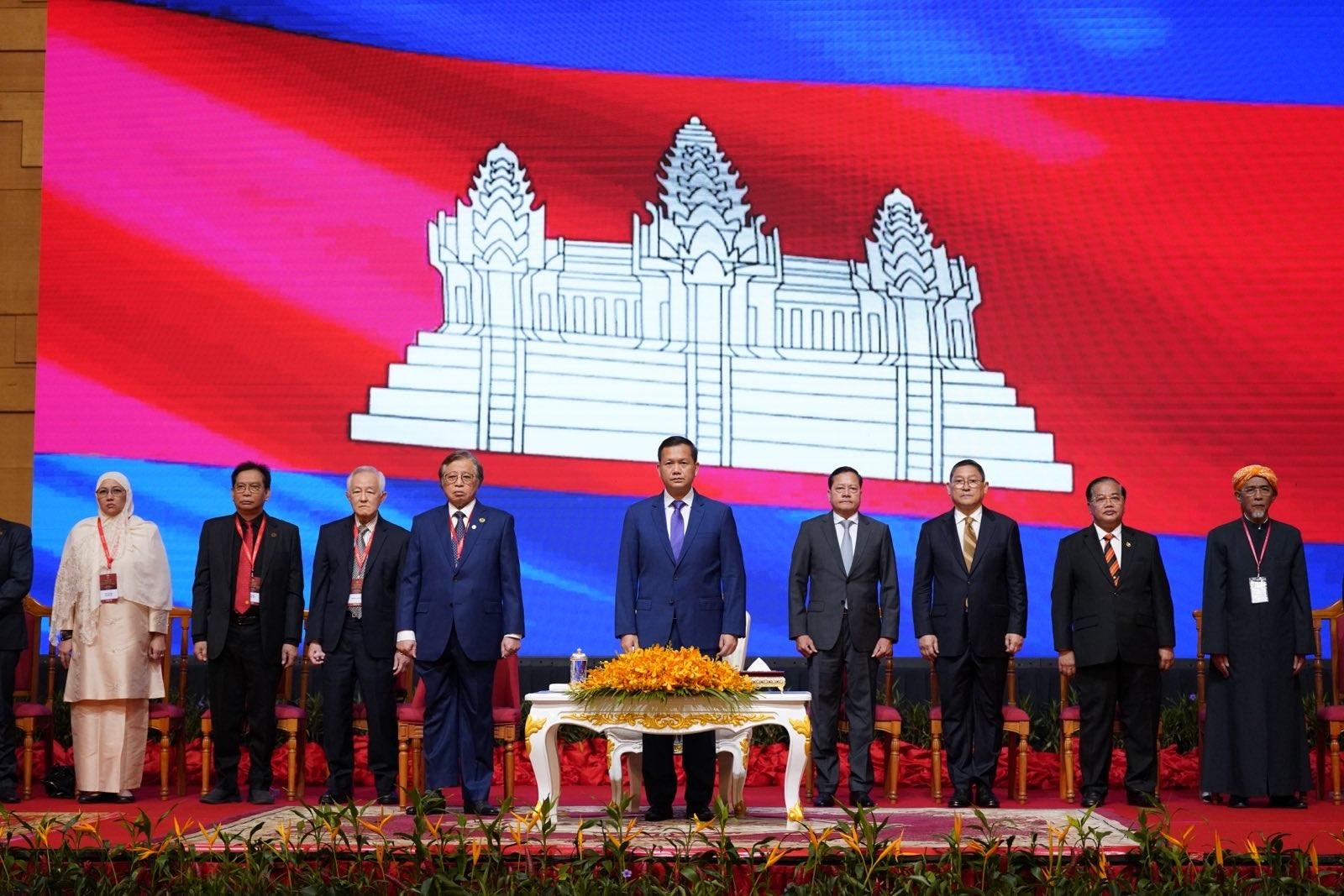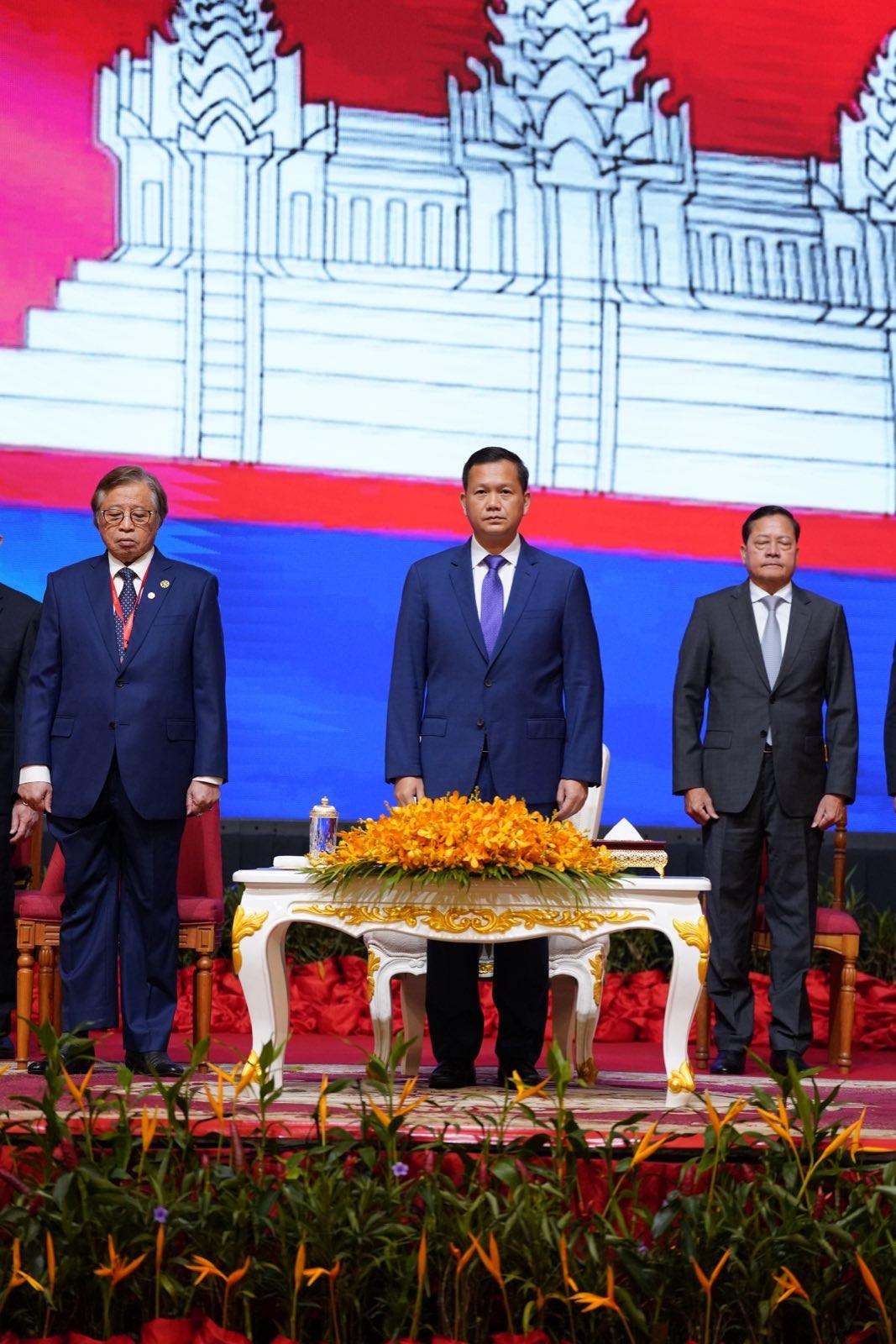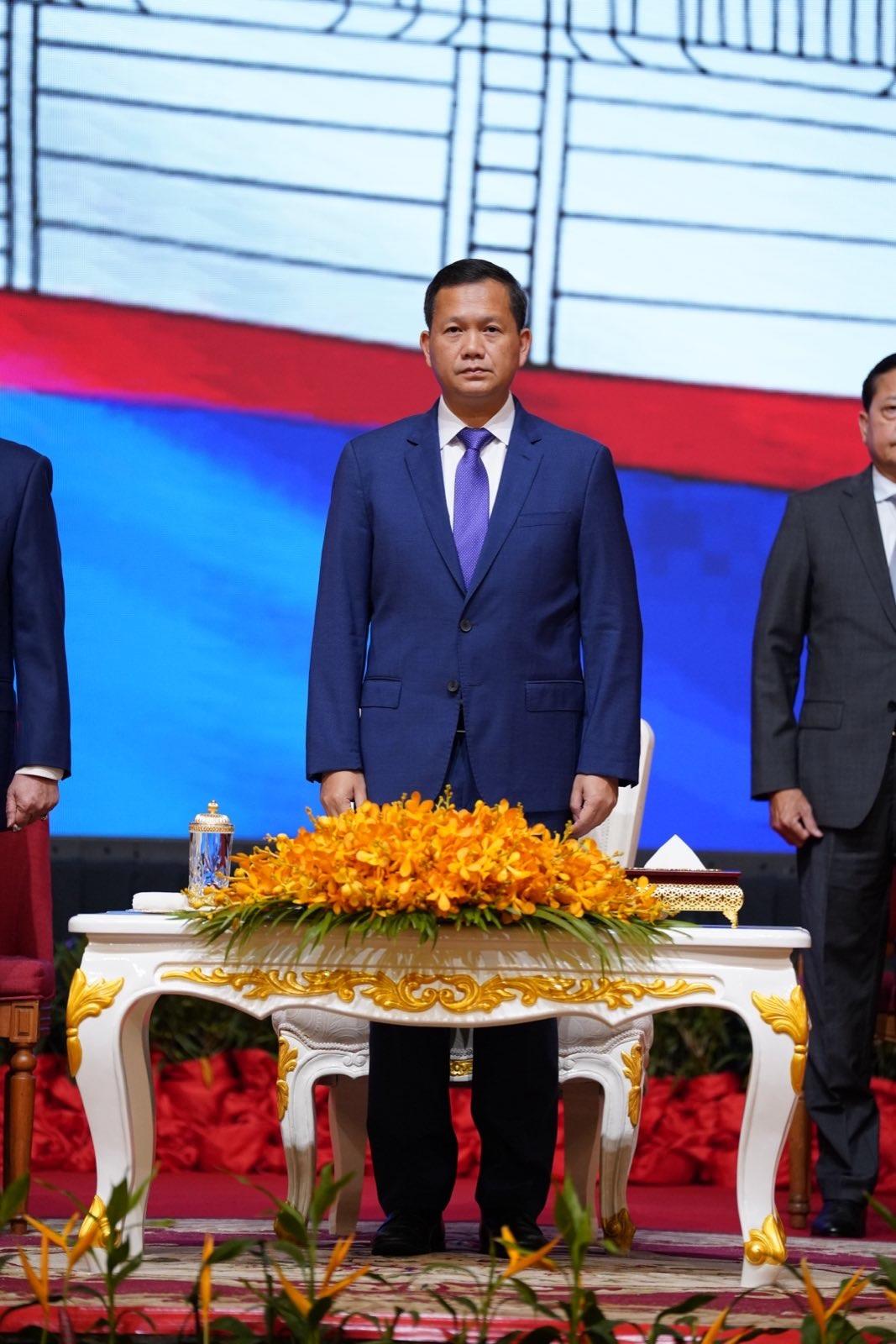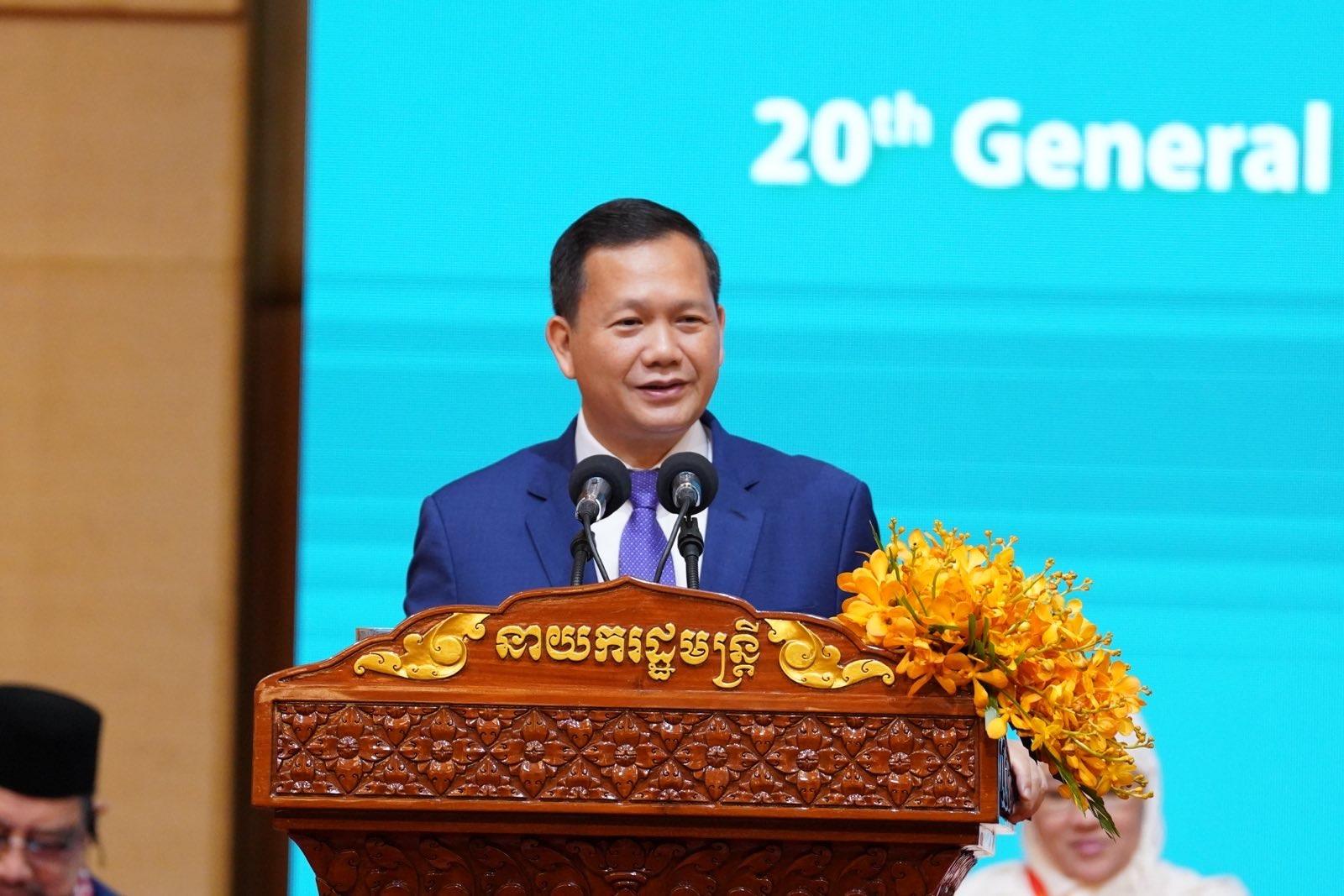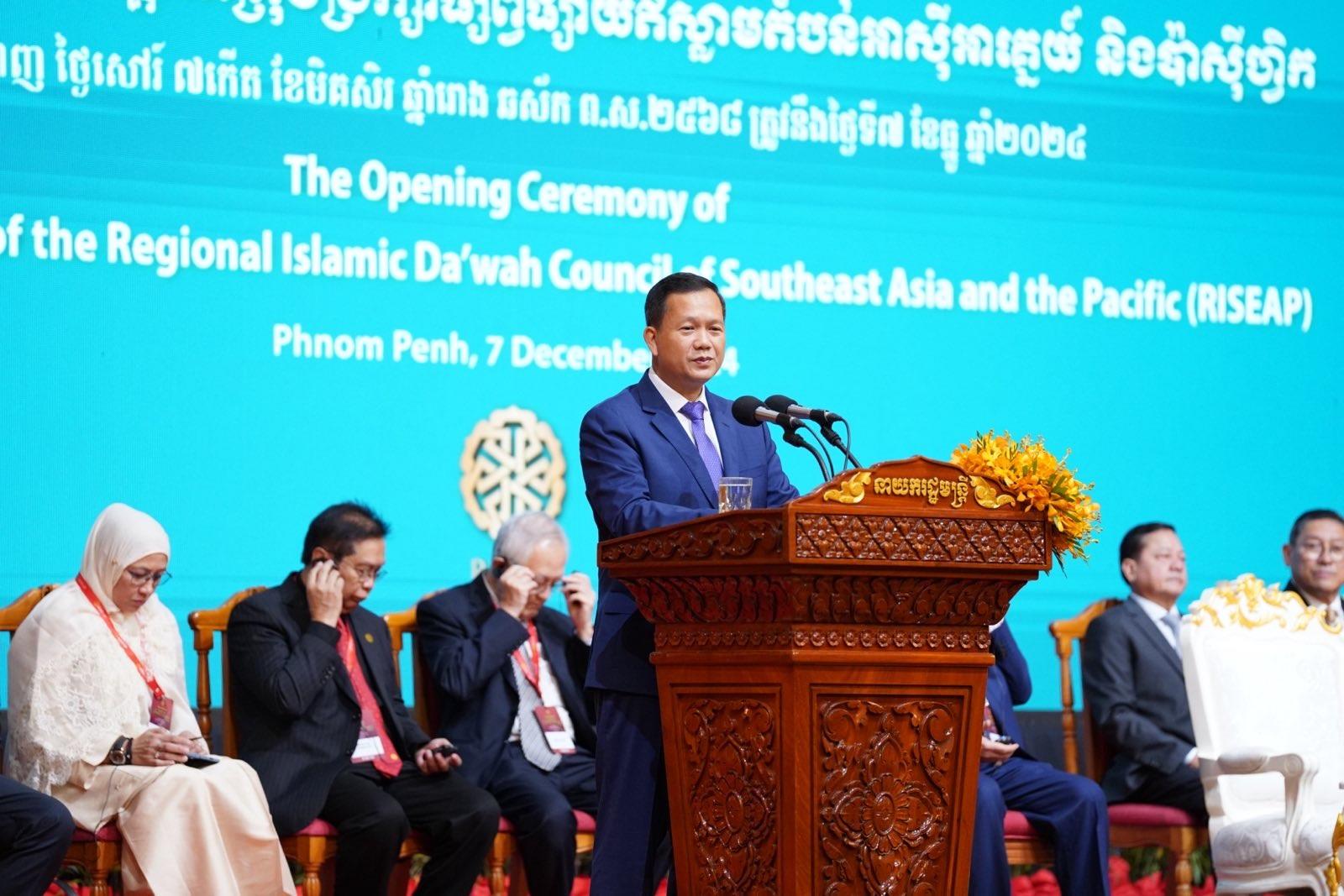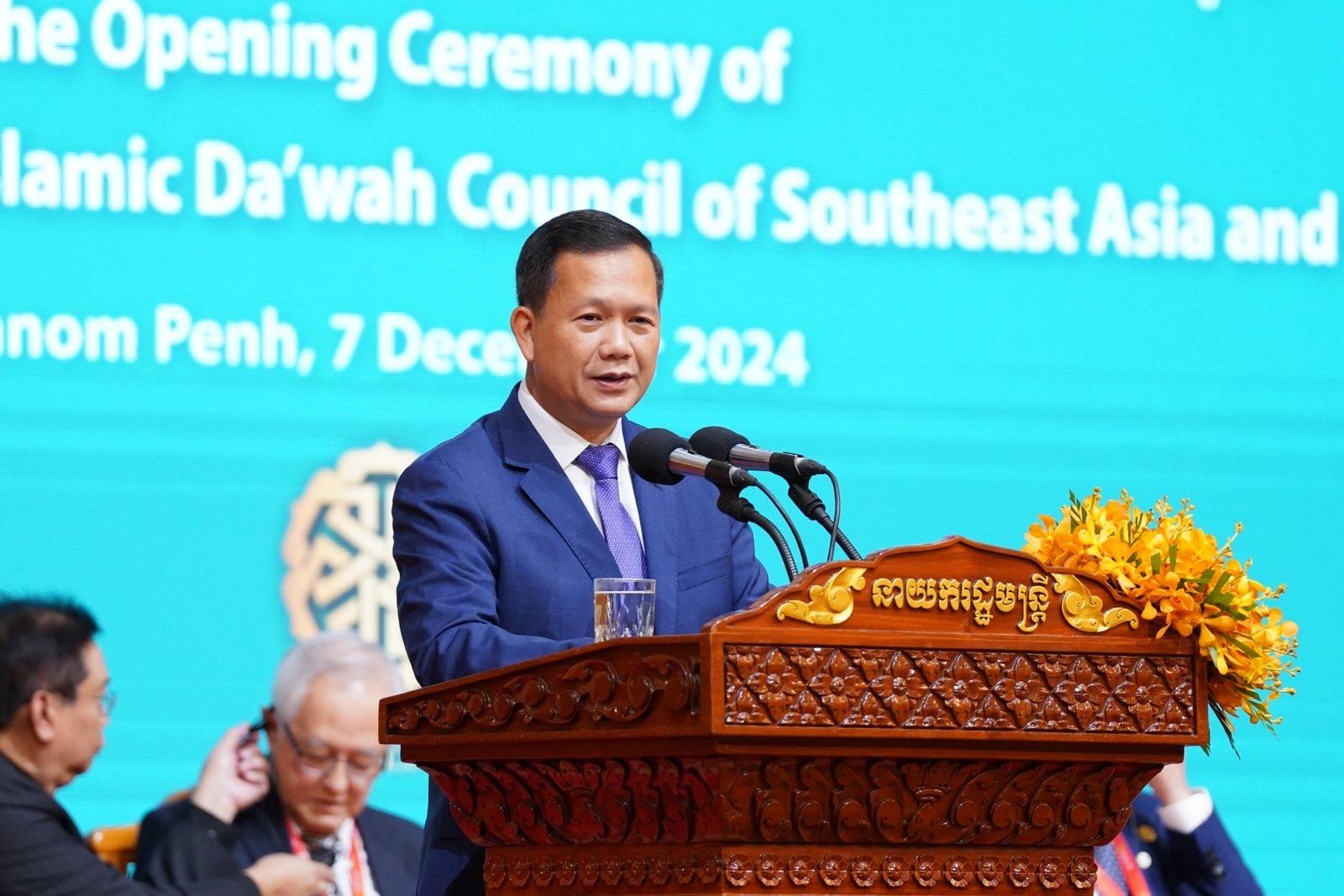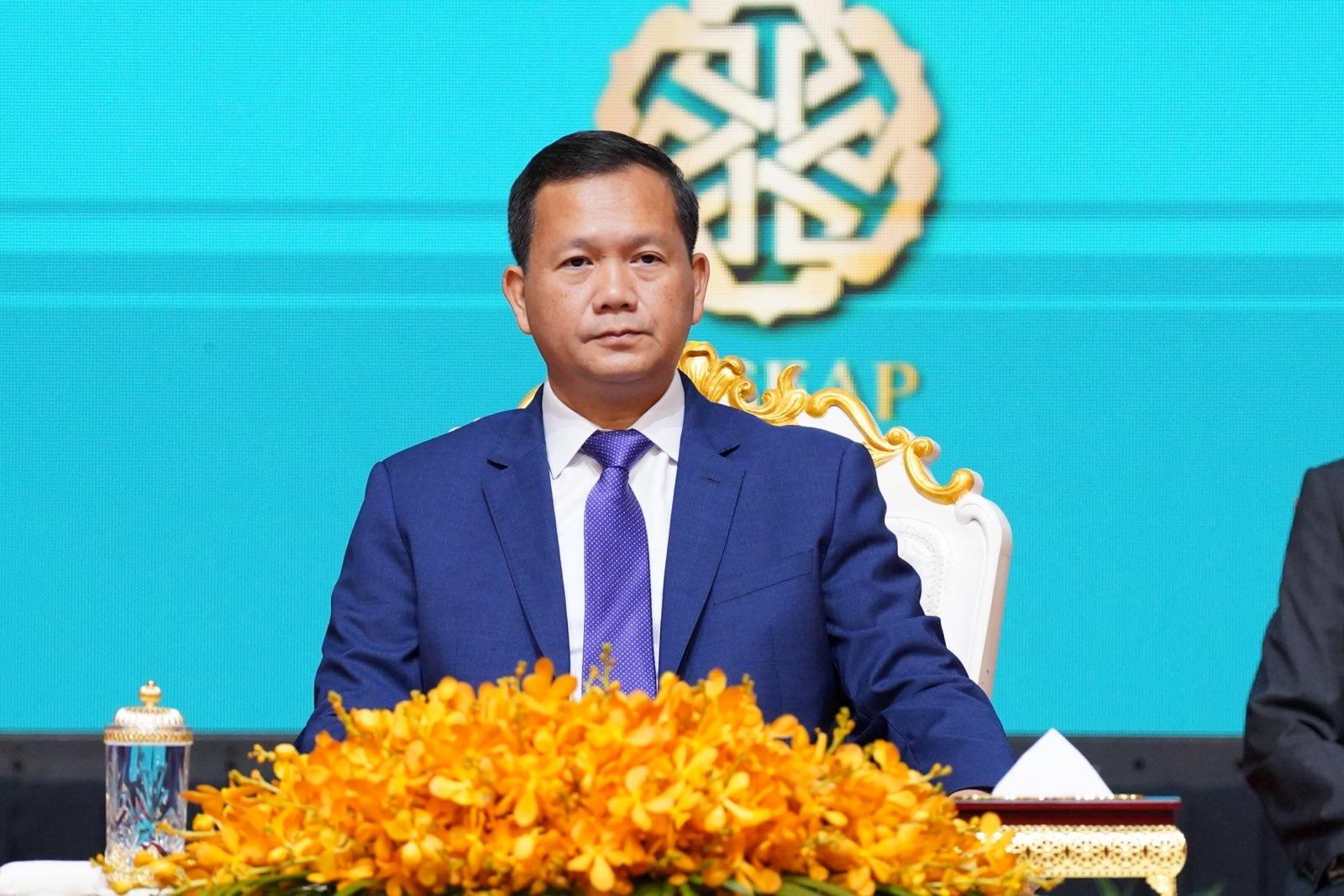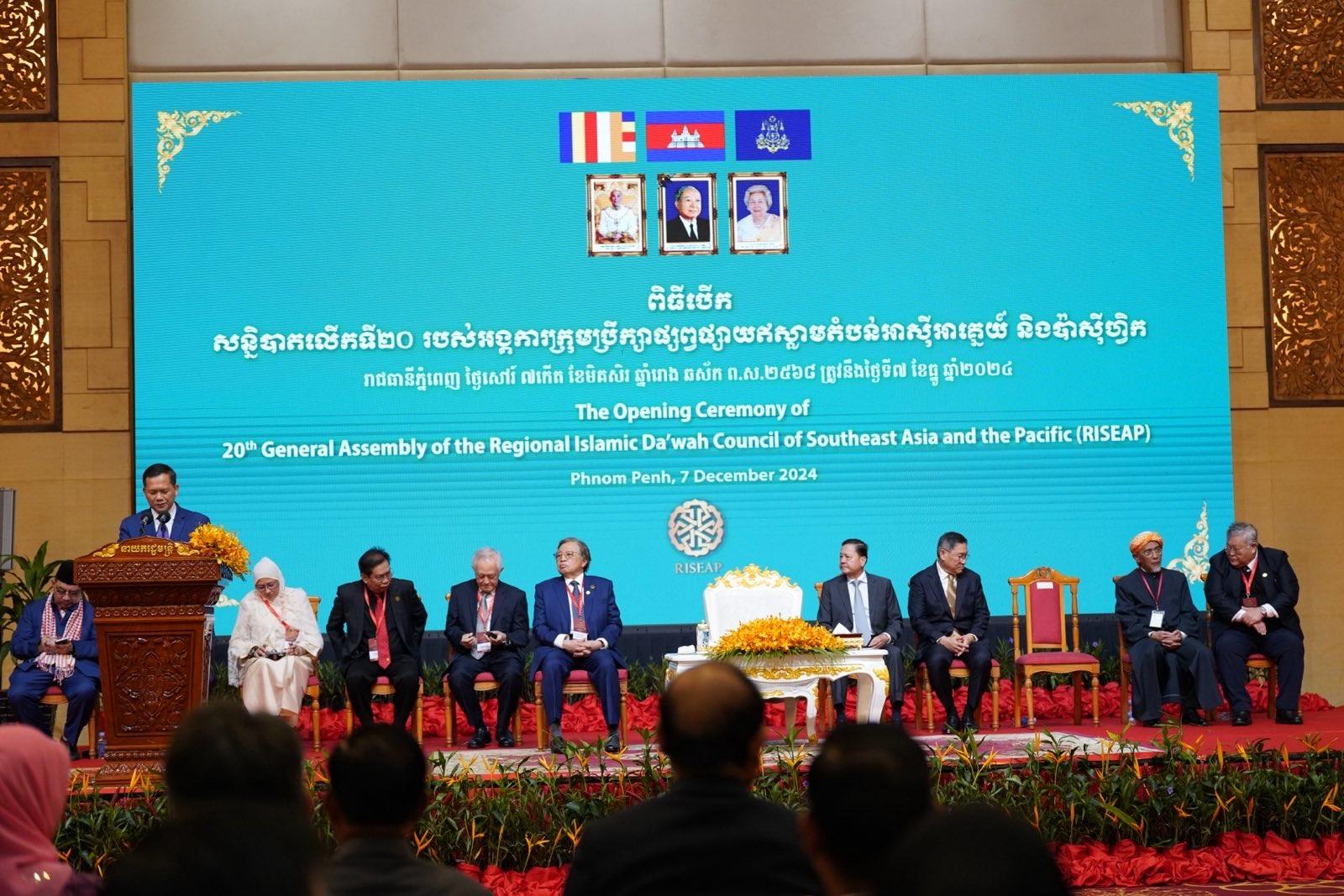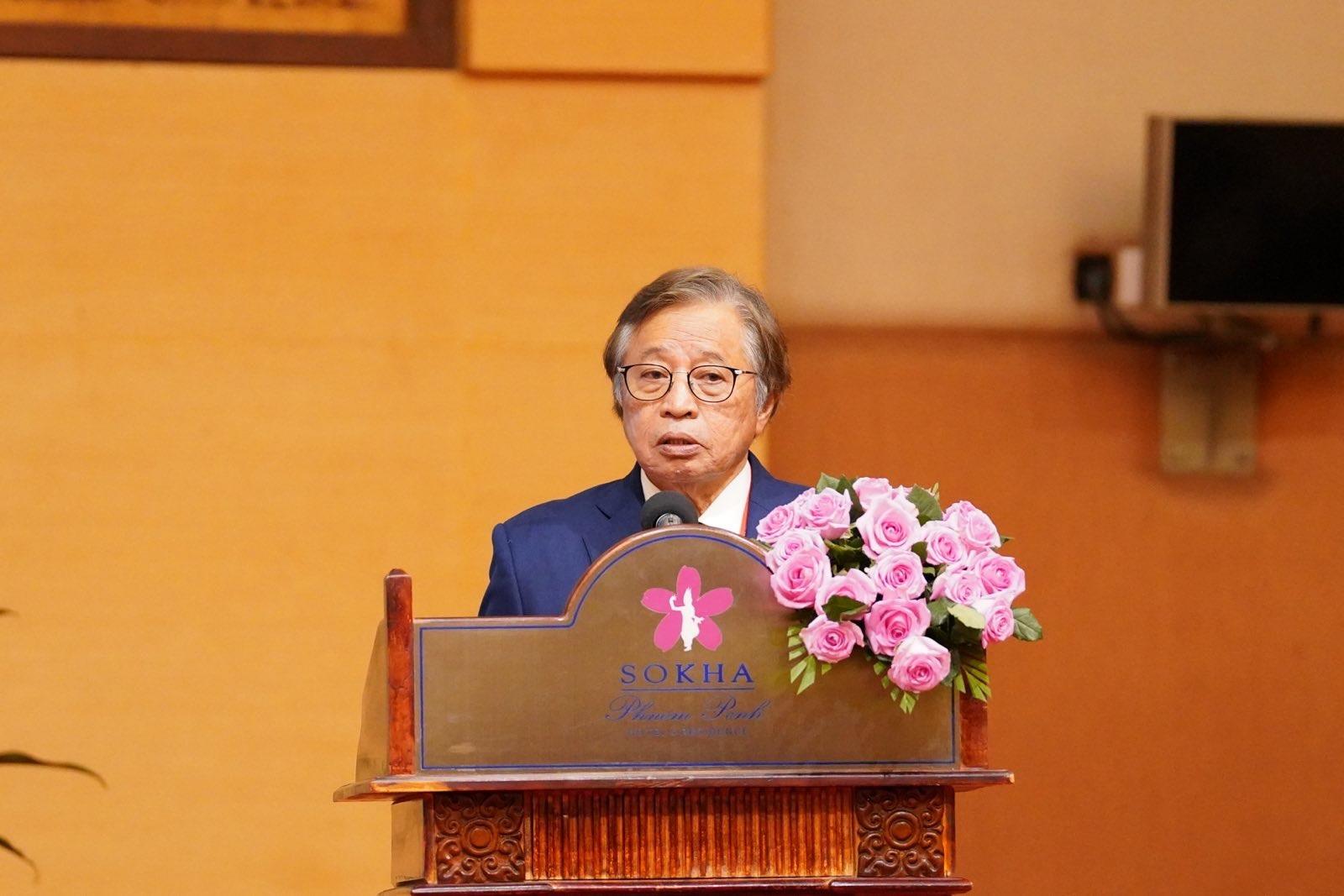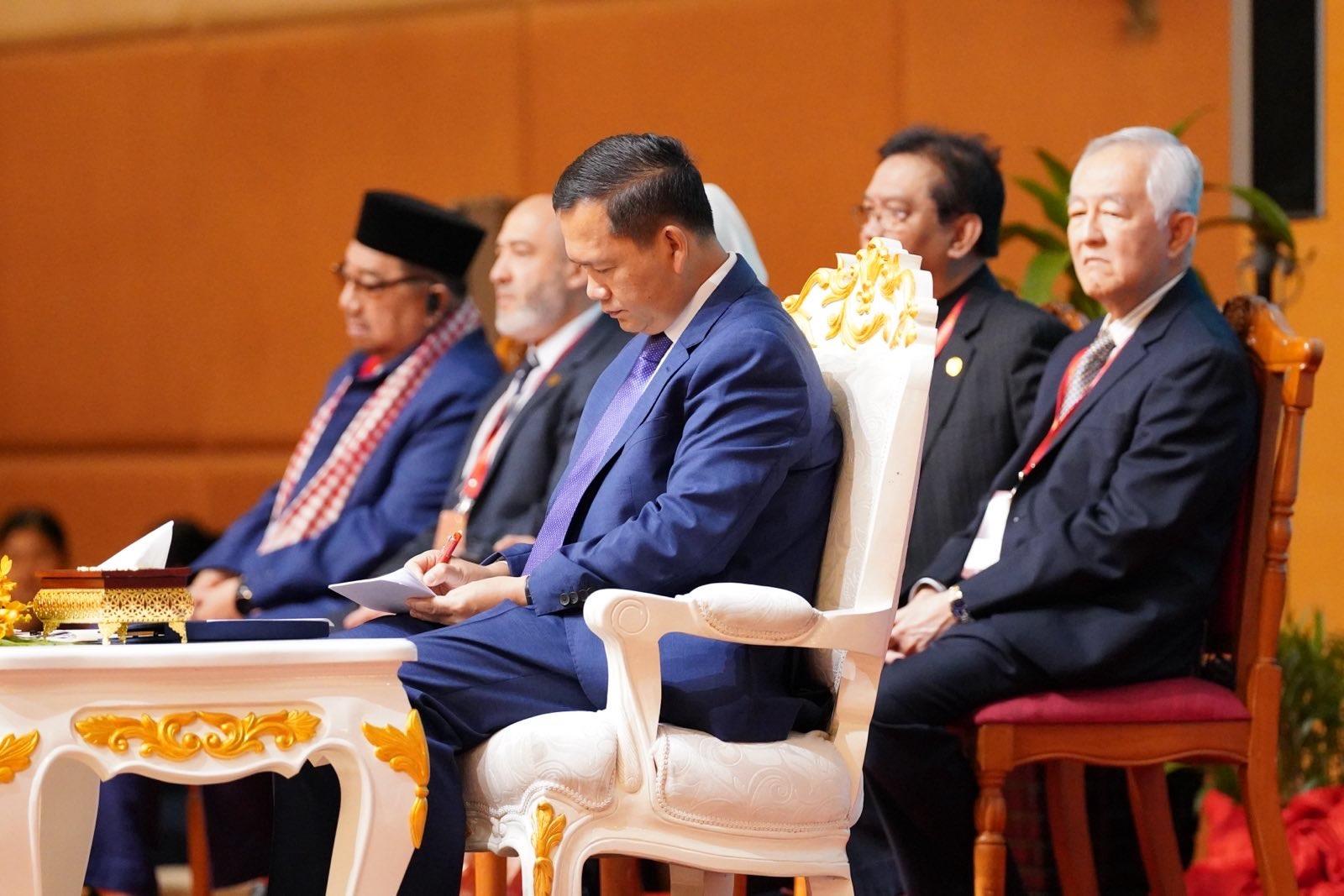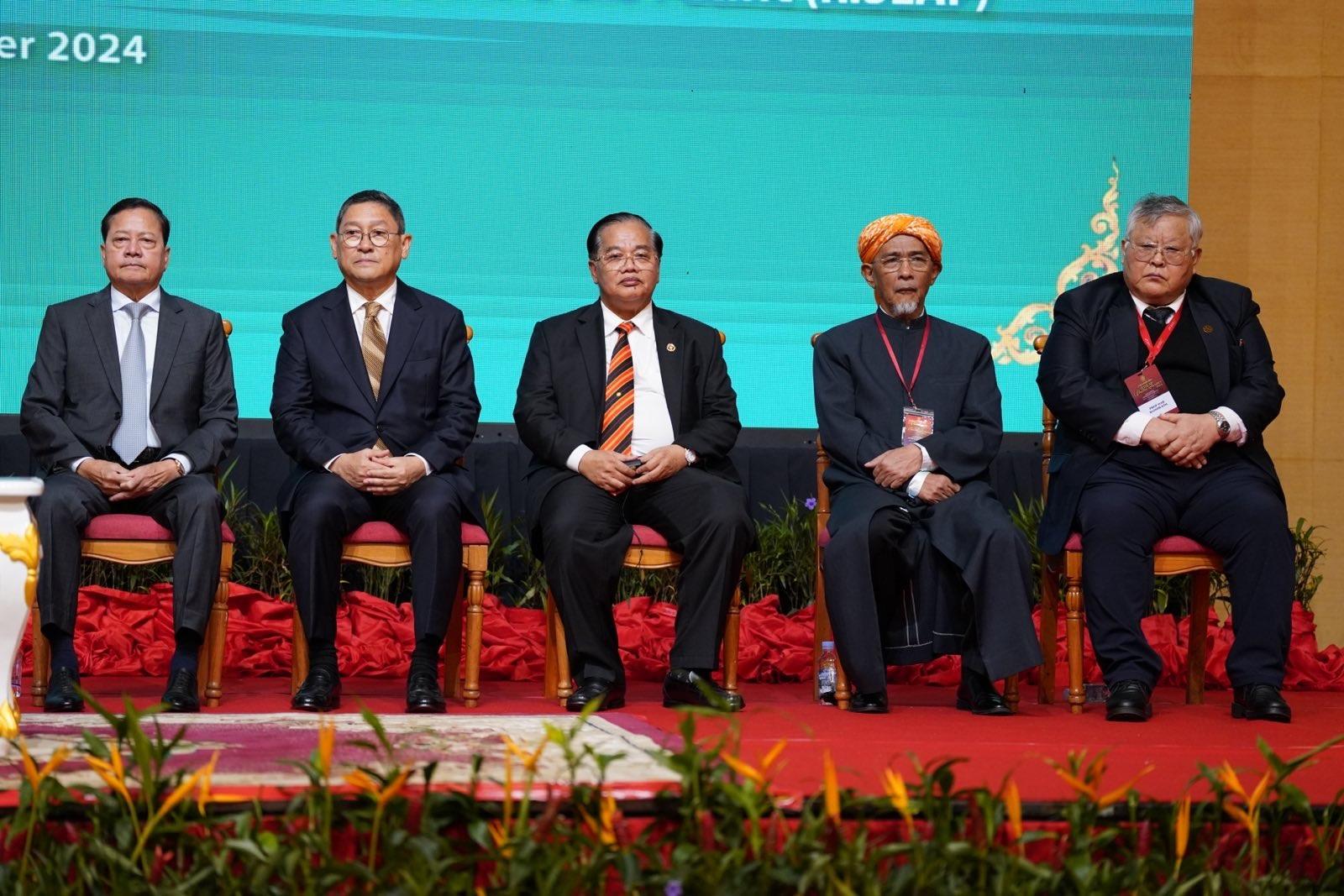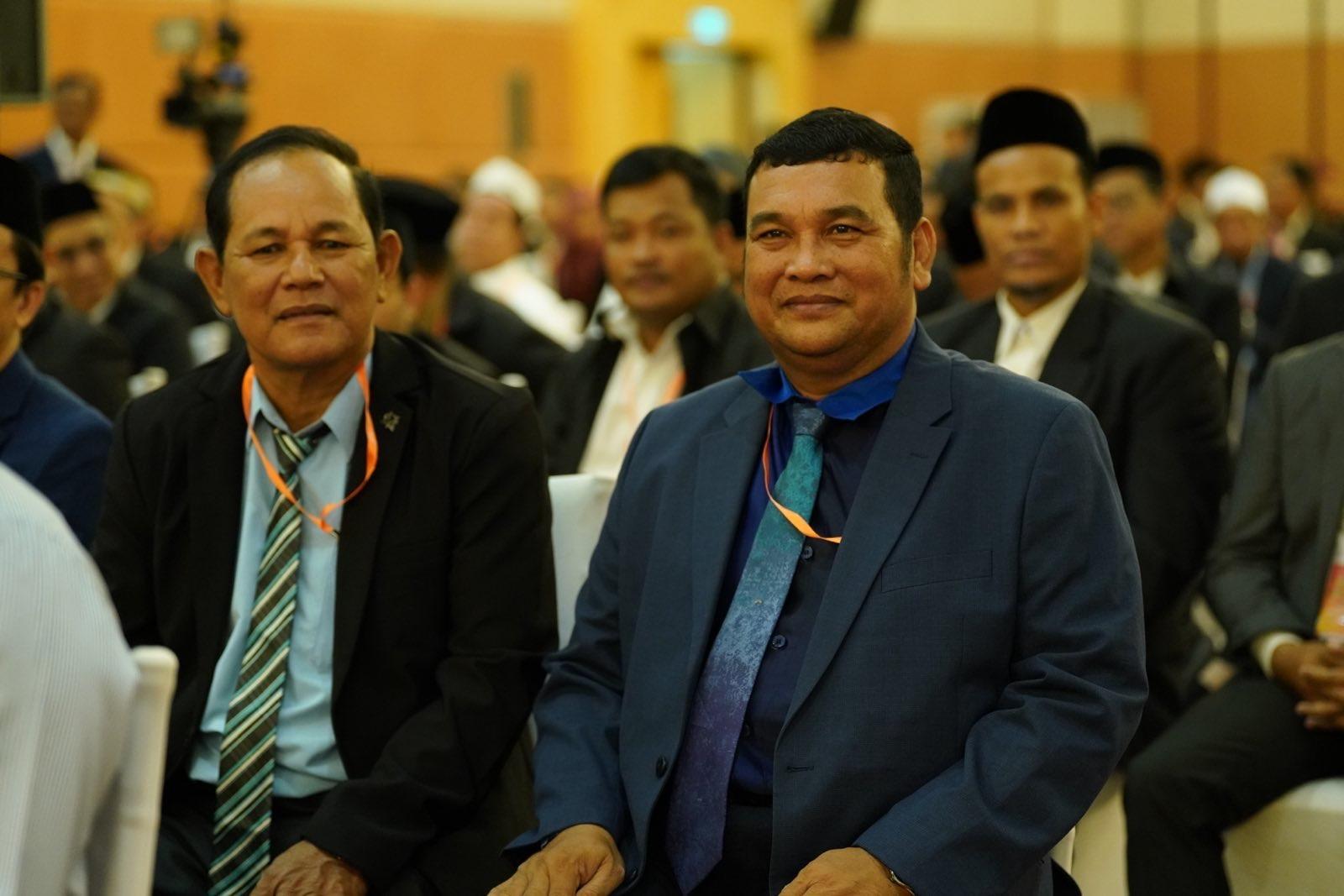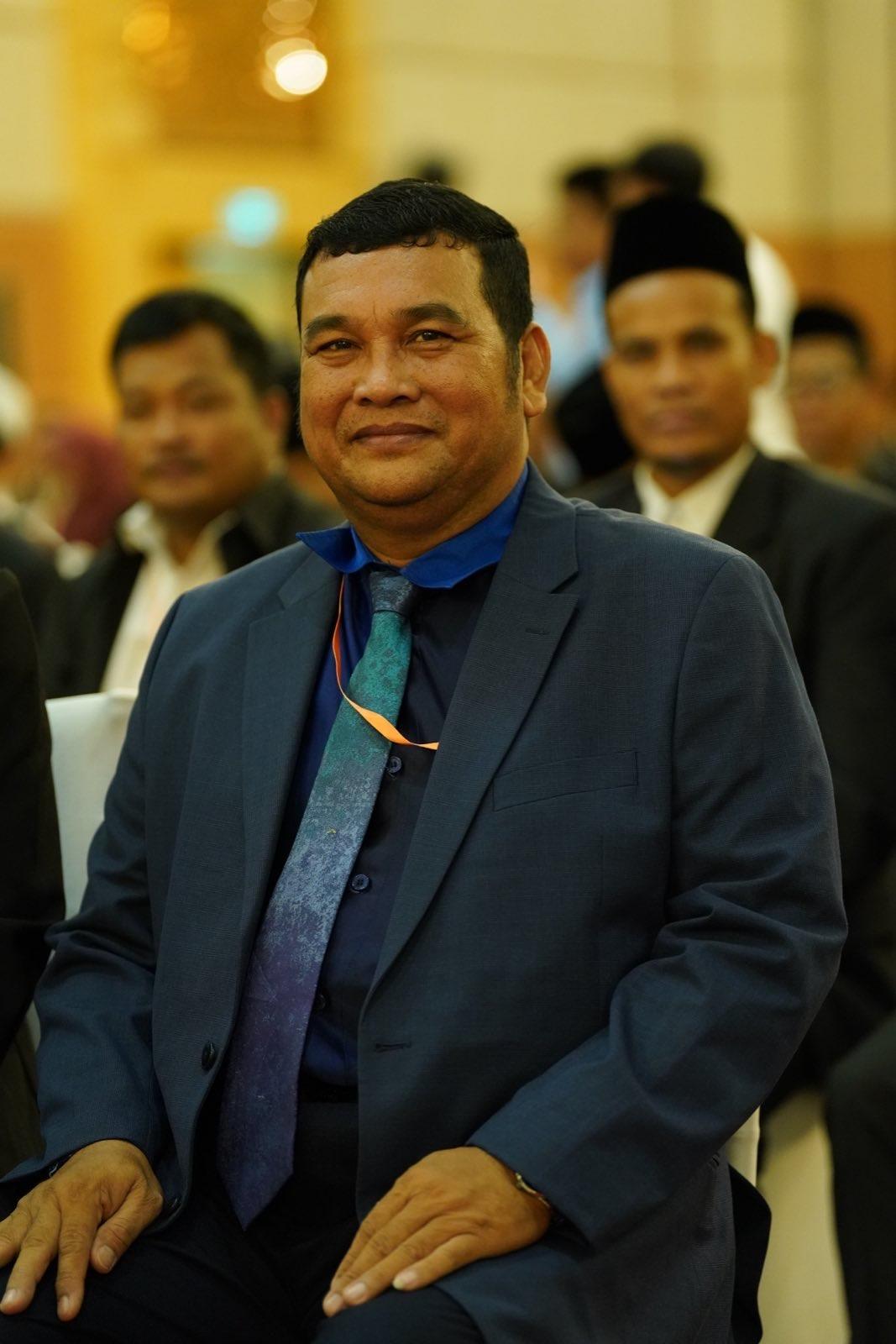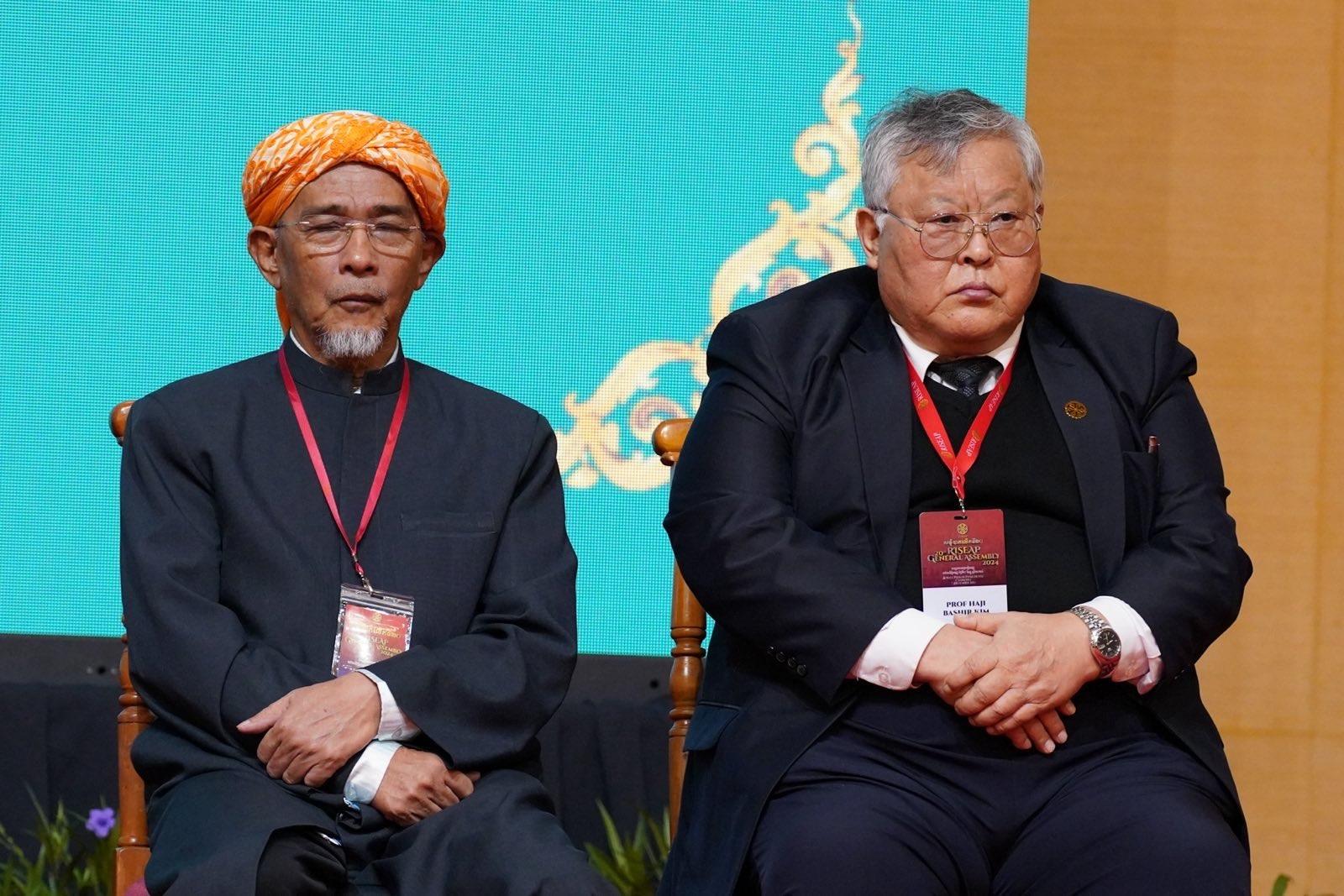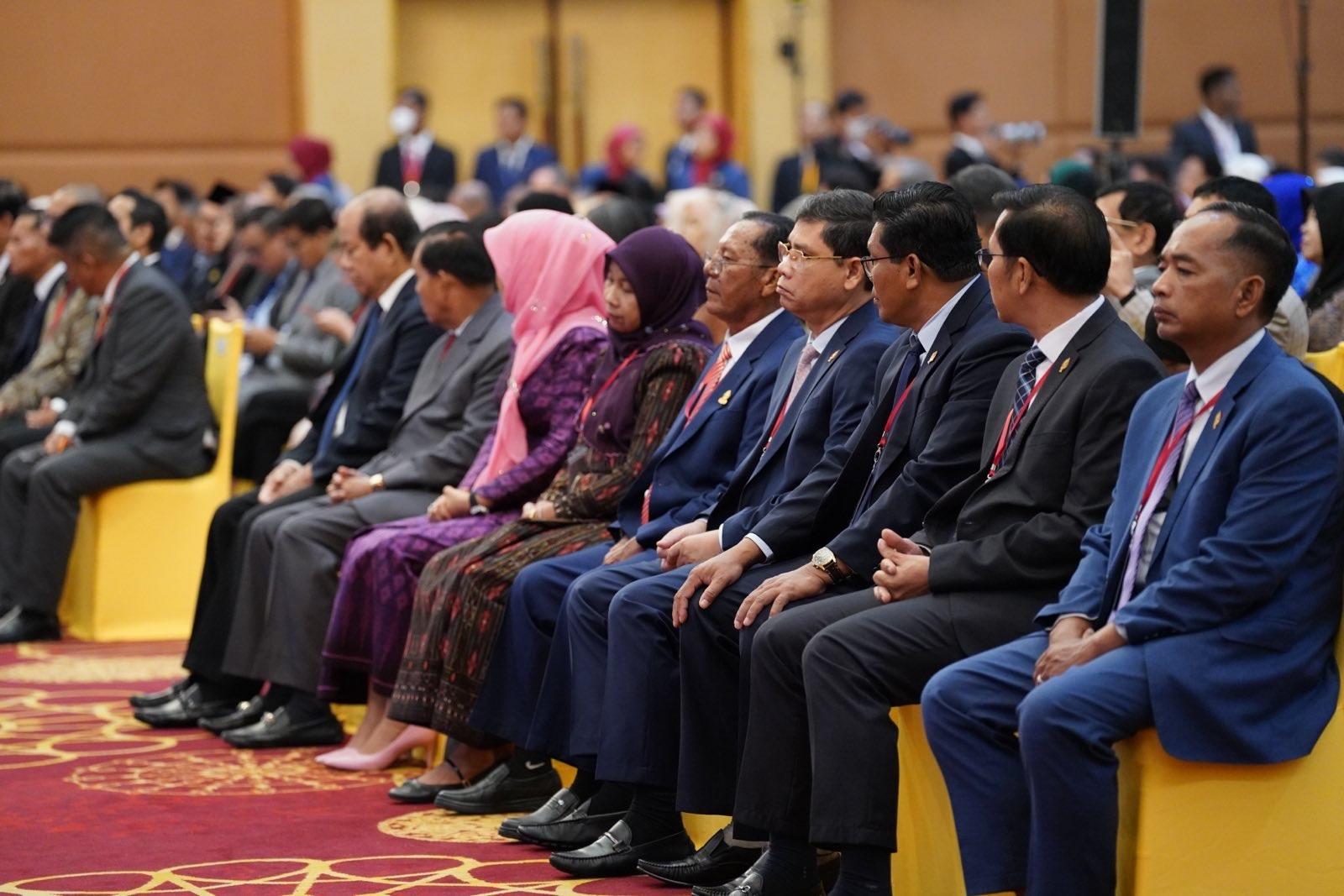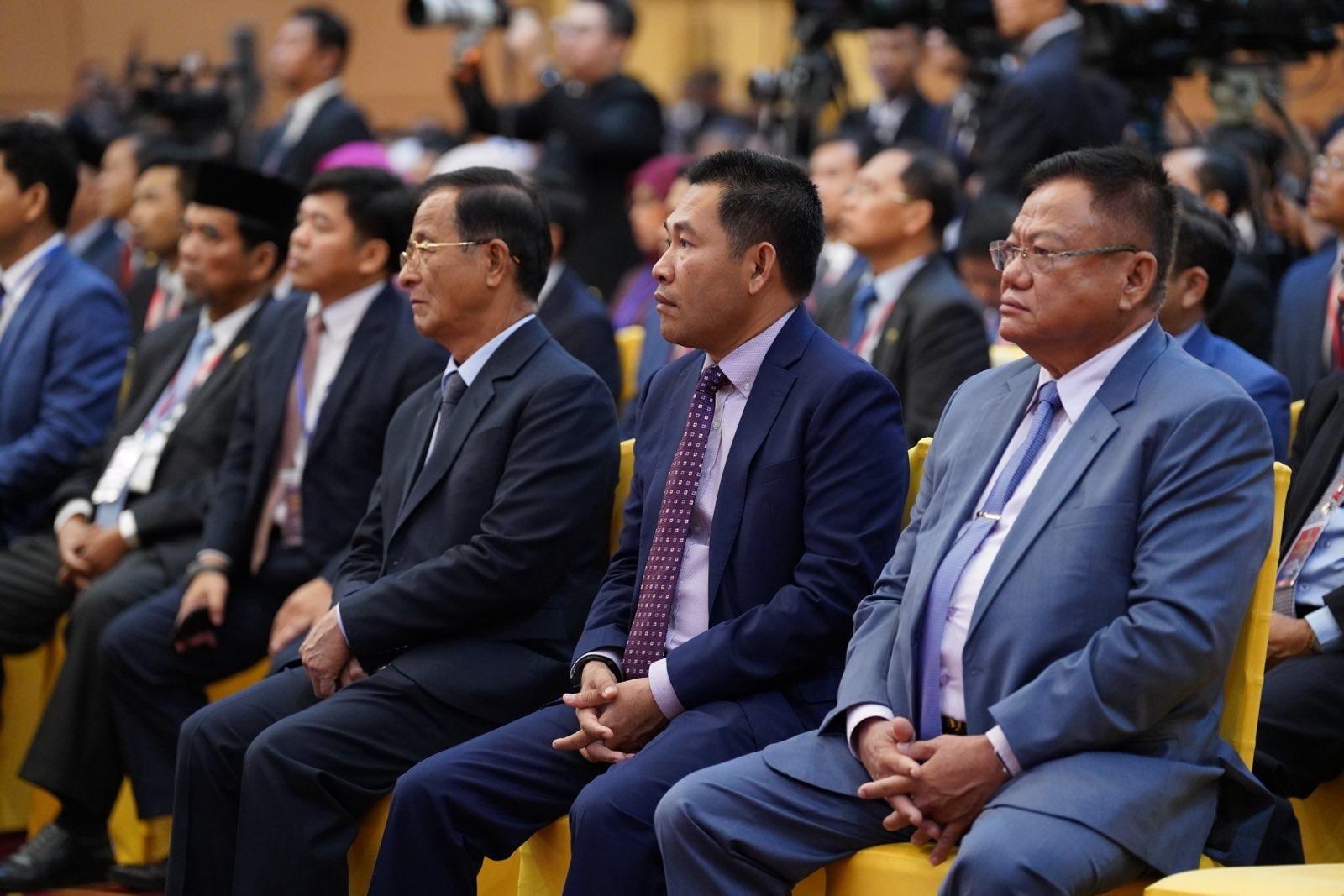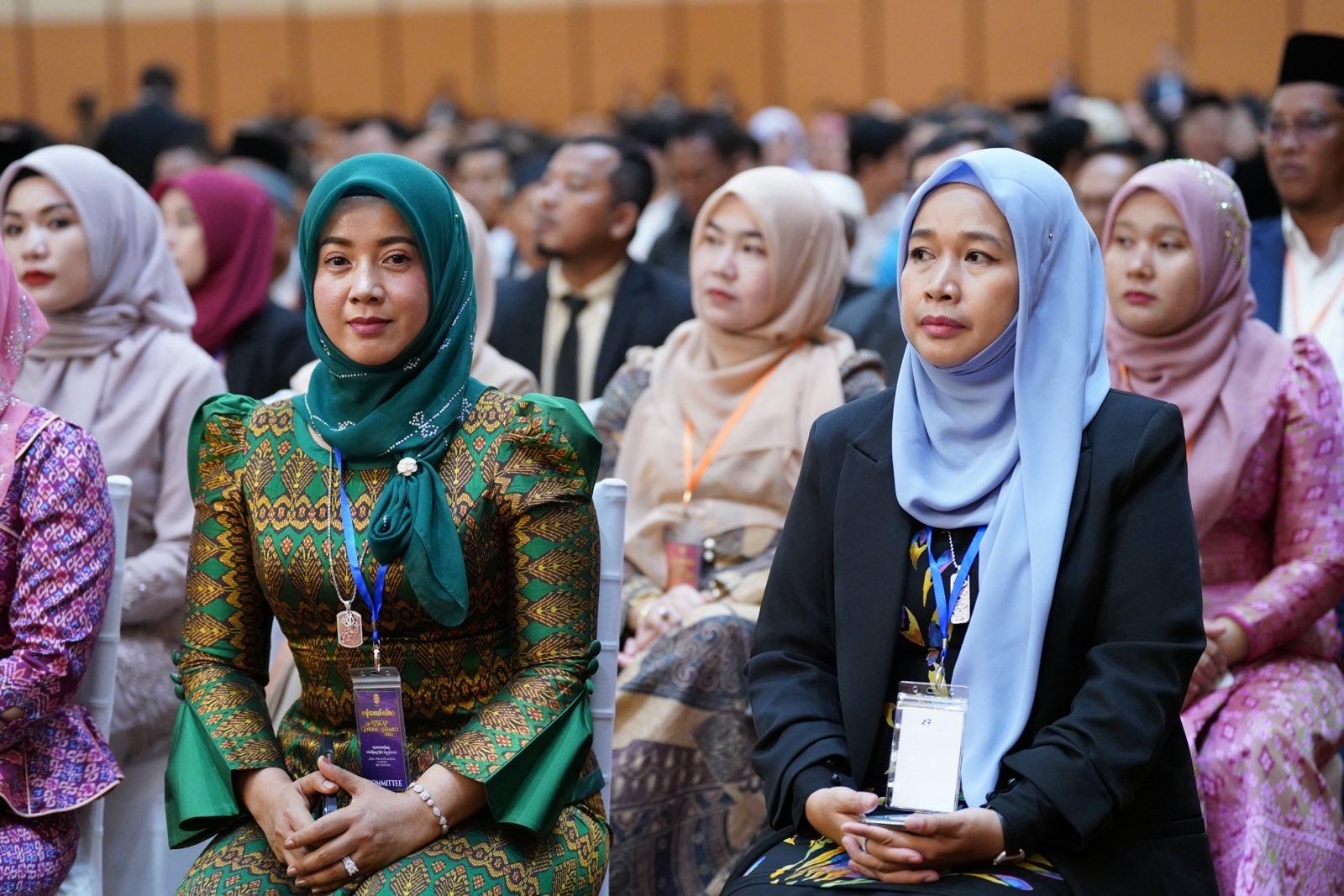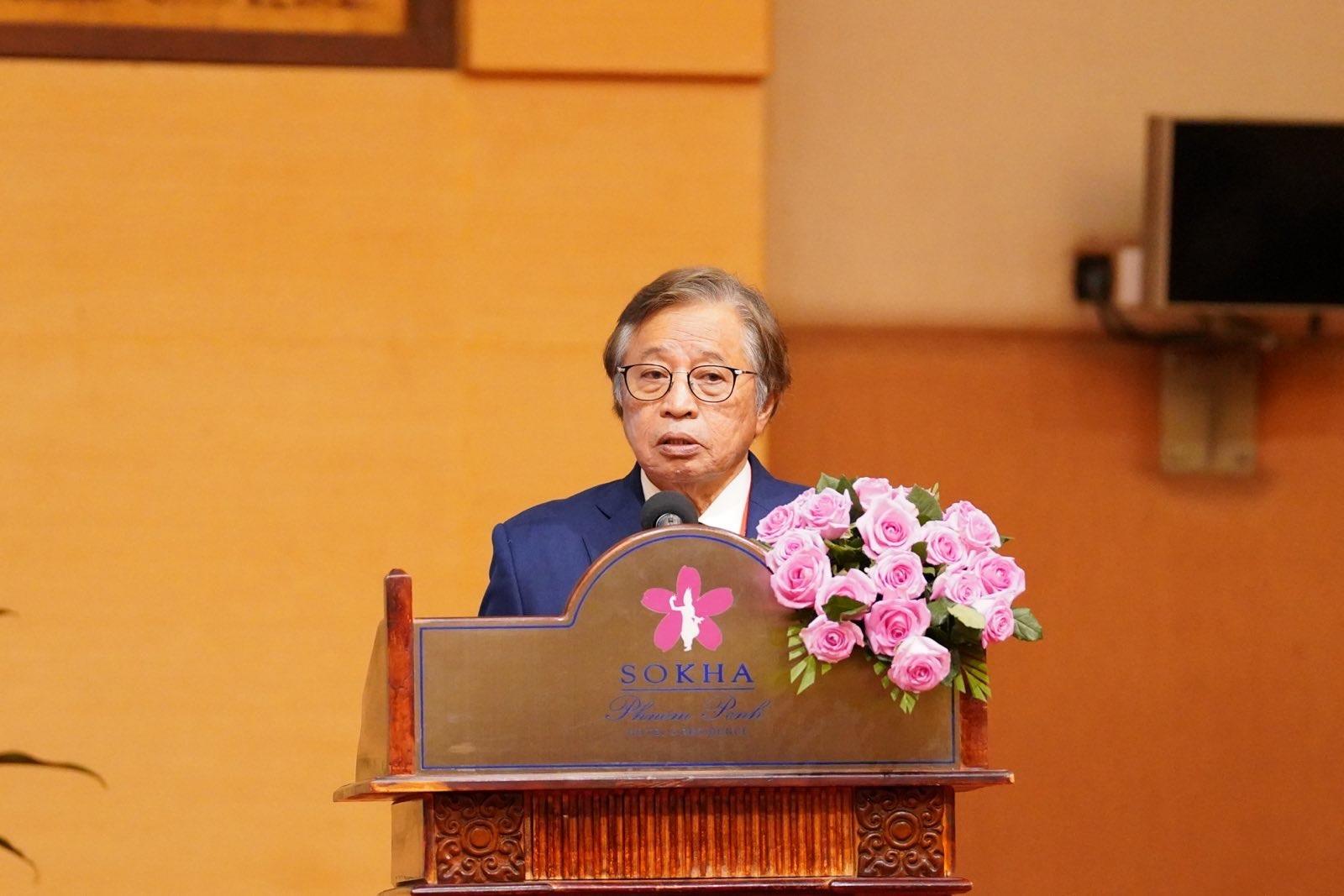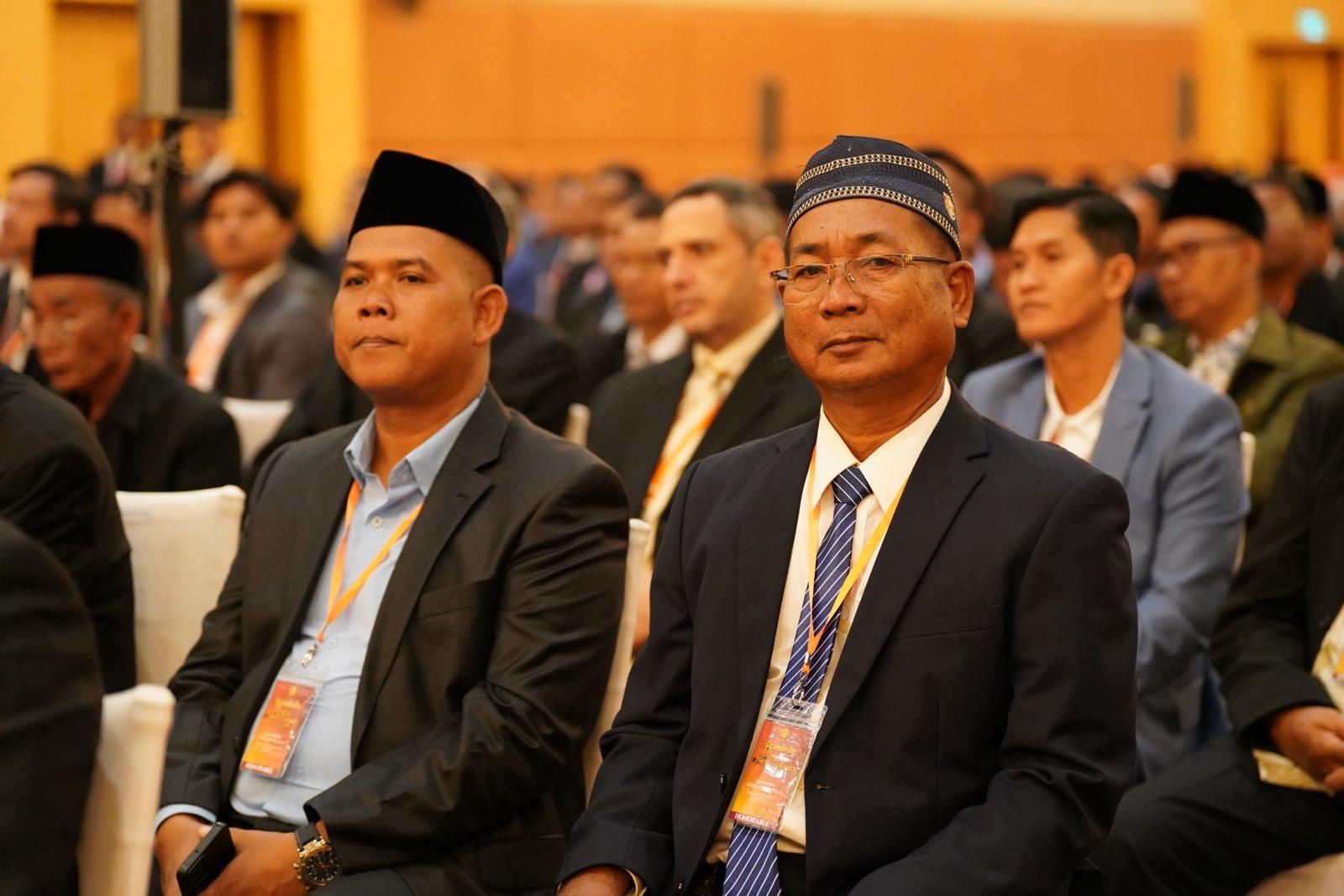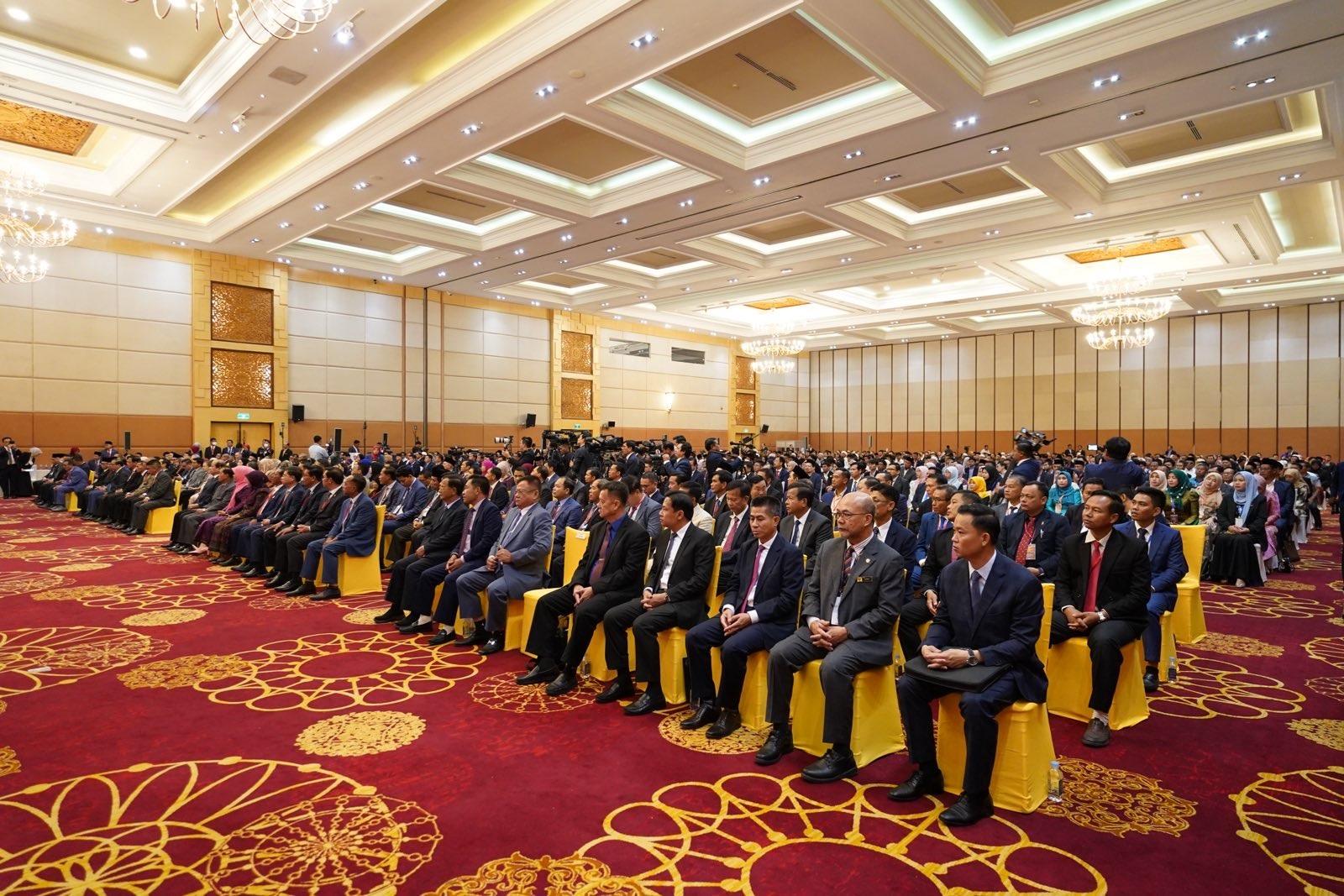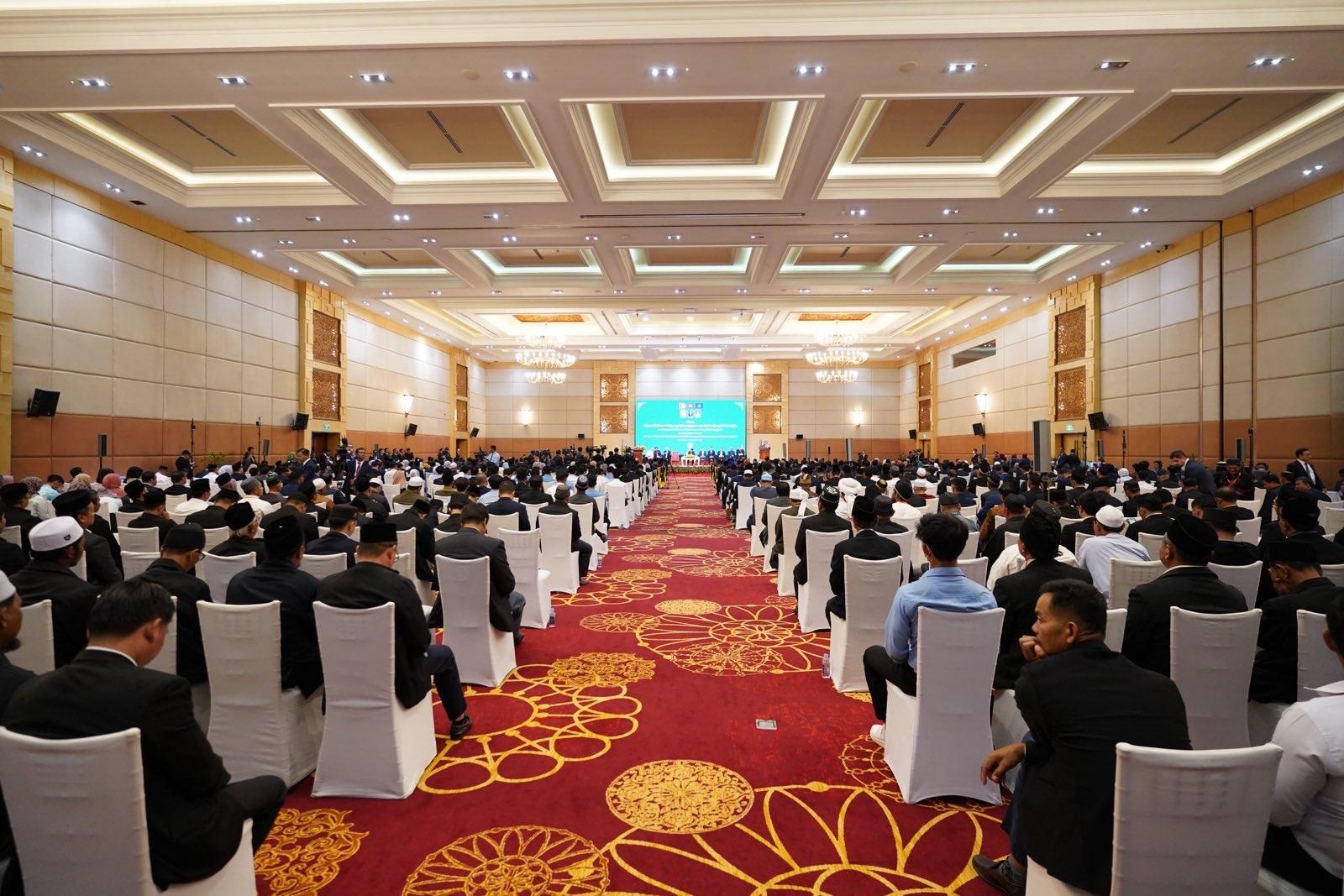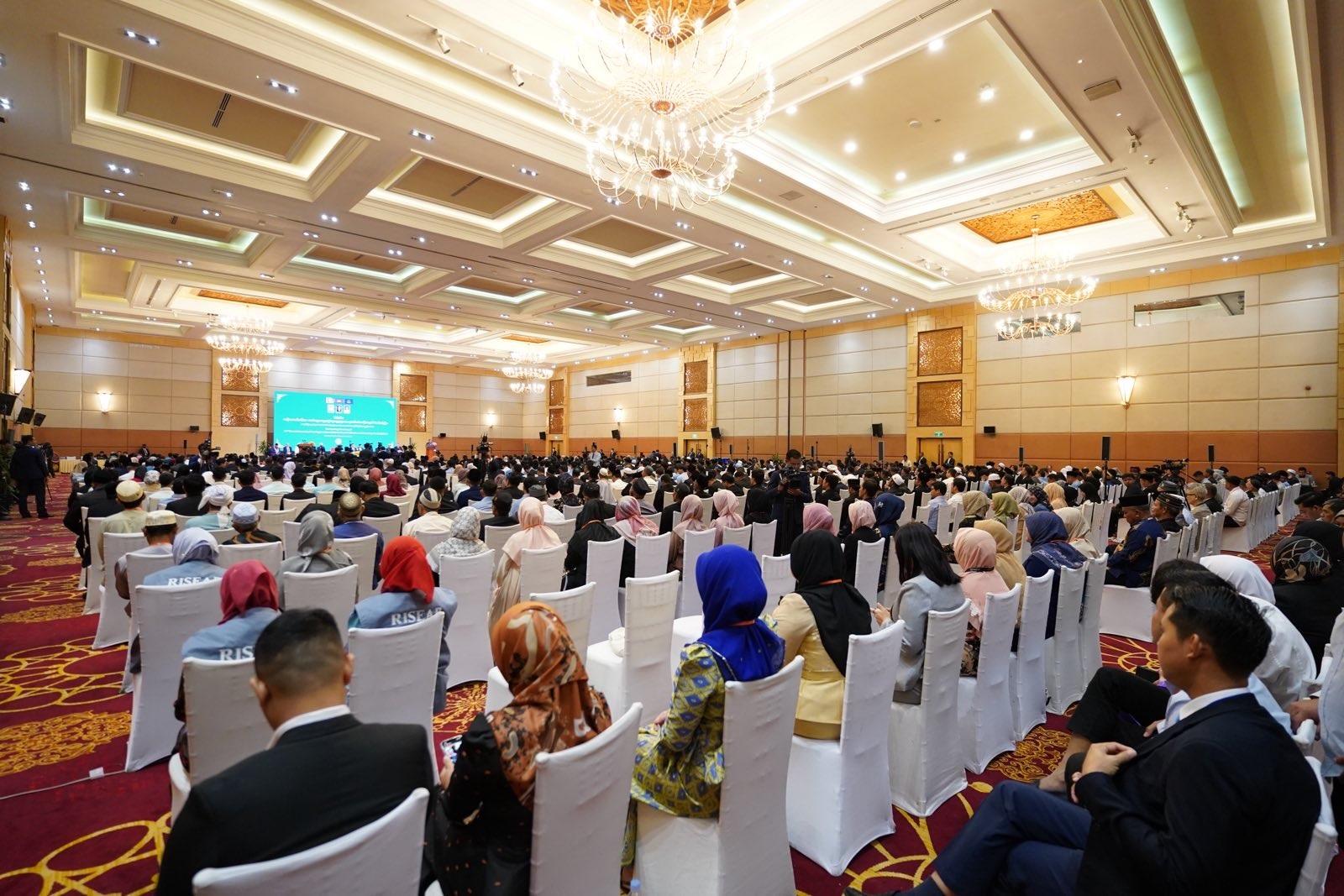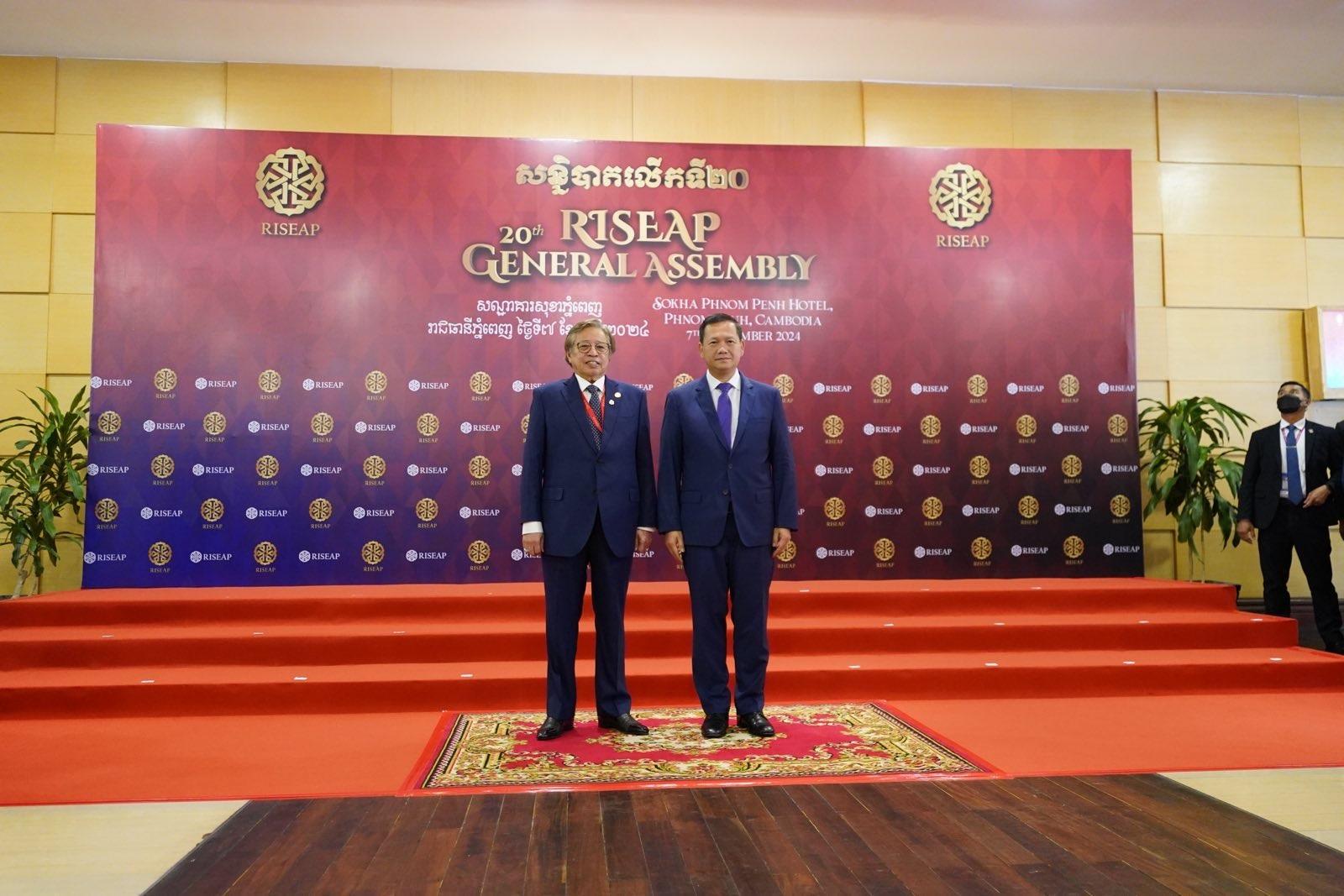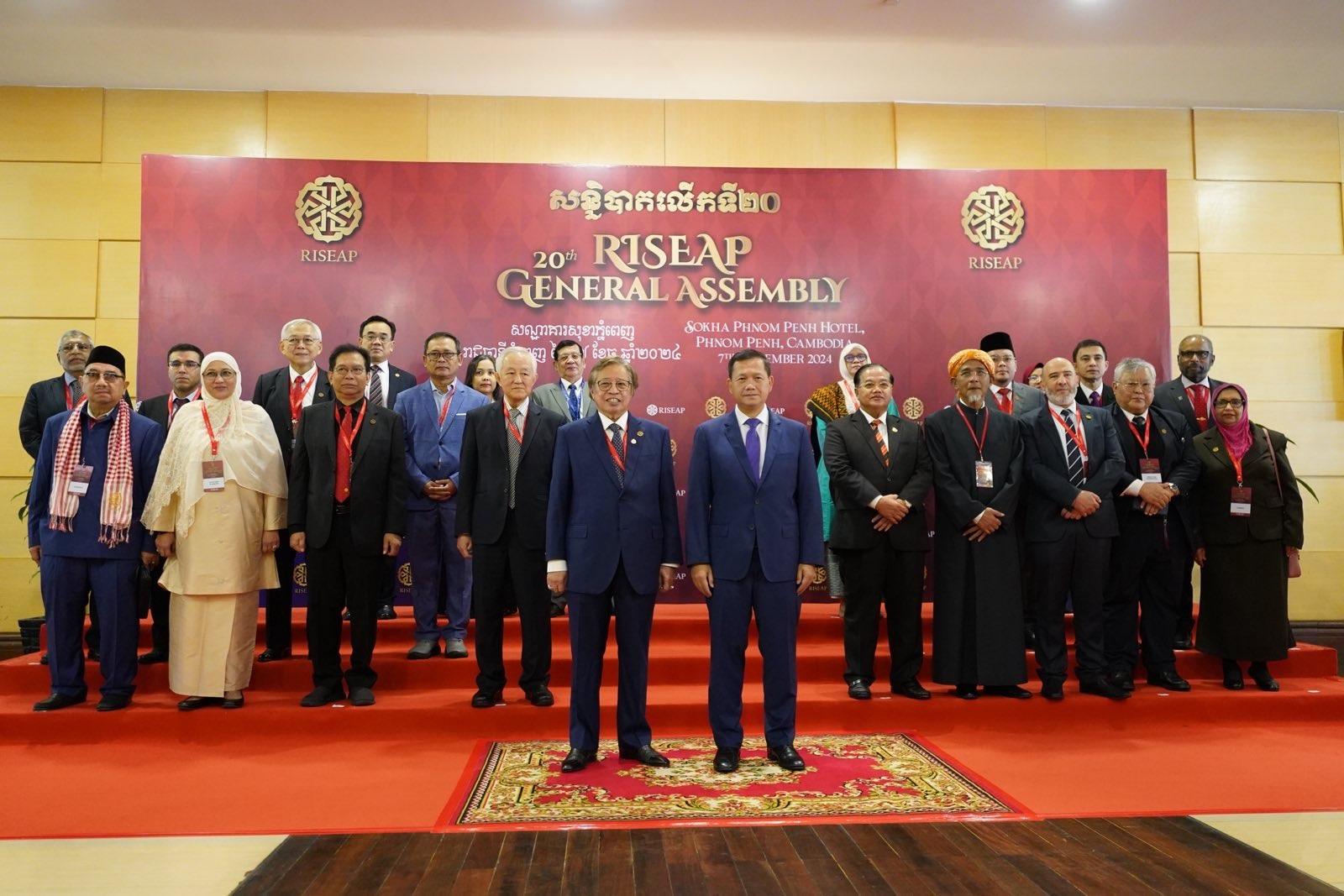Phnom Penh (FN), Dec. 7 – Cambodian Prime Minister Hun Manet stated that under the enduring peace Cambodia enjoys today, incidents of religious conflict are almost unheard of. He underlined that the Khmer Muslim community, as an ethnic minority, has consistently received support and attention from the Cambodian government.
The premier spoke on Saturday (Dec. 7) during the opening of the 20th General Assembly of Regional Islamic Da’wah Council of Southeast Asia and the Pacific (RISEAP) at Sokha Phnom Penh Hotel.
Samdech Thipadei Hun Manet highlighted that countries worldwide have expressed admiration for Cambodia’s remarkable transformation, particularly given its tragic and unimaginable history. Cambodia’s approach to peacebuilding, national unity, and tolerance has been highly valued by its international friends. They have also recognised Cambodia’s exceptional religious harmony, despite Buddhism being the state religion.
Samdech Thipadei underscored, “Today, under the enduring peace we have achieved, religious conflicts are almost unheard of in Cambodia. The Khmer Muslim community, as an ethnic minority, has always been supported and cared for from the very beginning.”
Samdech Thipadei Hun Manet added that Khmer kings throughout history have shown generosity towards the Khmer Muslim community, just as they have towards the Cambodian people in general. He added that the late King Father Norodom Sihanouk, the father of Cambodia’s independence, territorial integrity, and national unity, had a royal vision to officially name the Cham minority "Khmer Islam" after Cambodia gained independence from France in 1953. This act was intended to integrate the Cham minority as legitimate Khmer Muslims, fostering unity and encouraging them to adopt a shared Khmer identity while leaving behind their original distinctions.
The prime minister further stated that Khmer Muslims endured immense suffering during Cambodia’s turbulent history, facing war and racial discrimination under the Khmer Republic, and the complete suppression of religious freedom and genocide during the Democratic Kampuchea regime.
On the occasion, Samdech Thipadei added that it was not until 7 January 1979 that religious freedom in Cambodia was restored. He remarked that promoting religious harmony is deeply embedded in the values of the Cambodian People’s Party (CPP). Throughout every mandate of the CPP-led government, this principle has remained a cornerstone of governance.
Samdech Thipadei underlined that the Royal Government ensures freedom of worship for the Islamic faith. For instance, Muslim students in Cambodia are permitted to wear traditional Islamic attire at all levels of education. Women are allowed to wear headscarves, and men can wear Islamic caps in photographs used for official administrative documents such as passports and ID cards.
Premier Hun Manet noted that Cambodia has increasingly supported the needs of its Muslim community by establishing prayer rooms in airports, public hospitals, factories, hotels, and even some supermarkets. Notably, the Peace Palace, home to the Office of the Council of Ministers, also provides worship facilities. Additionally, an increasing number of Cambodian Muslims now have the opportunity to perform the Hajj pilgrimage, and some have partnered with foreign investors to establish businesses in Cambodia.
=FRESH NEWS
